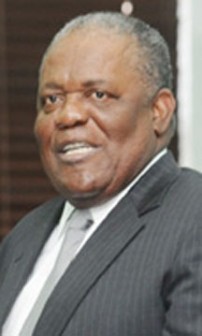NASSAU, (Reuters) – Bahamas will crack down on gun and drugs crime by introducing tougher penalties, strengthening the police and courts system and applying the death penalty for some categories of murder, the prime minister said.
Addressing the nation on Monday night, Prime Minister Hubert Ingraham promised vigorous government action against what he called an “intolerable level of crime” threatening the Atlantic island chain, where tourism is major driver of the economy.

“We will get the crime numbers down,” Ingraham pledged, adding his government would introduce legislation to parliament that would toughen jail terms for gun and drugs offenders and also make it harder for suspects to obtain bail.
Bahamas, a scattered archipelago of islands stretching from just off eastern Florida to near Cuba, has a population of 350,000 and is the latest small nation in the Atlantic-Caribbean area to sound the alarm over rising crime.
Oil and gas producer Trinidad in August introduced a limited form of emergency rule to try to halt a surge in violent crime linked to the drug trade.
Ingraham said crime in Bahamas, which has an active cruise line business and receives several million visitors from the United States each year, had reached unprecedented levels. Police have registered a record 104 murders so far this year, surpassing the 94 for all of last year.
Authorities are worried about the potential impact on tourism, which, along with related construction and manufacturing, provides an estimated 60 percent of the gross domestic product of Bahamas. The sector directly and indirectly employs about half the Bahamian workforce.
The prime minister said the latest criminality had its roots in “rampant drug trafficking and gangsterism” that had flourished in Bahamas in the 1970s and 1980s. He announced immediate measures to curb unlicensed firearms in the country.
From Wednesday, citizens and residents are being given 30 days to hand over unauthorized firearms or face a minimum jail sentence of four years if caught with an unlicensed weapon.
Under planned penal code amendments, penalties for gun and drugs crimes are being increased to a maximum of seven years.
The death penalty, last carried out in Bahamas in January 2000, is being retained and will be applied where victims are members of the police or defense forces, the customs, immigration and prison services, or of the judiciary. It will also apply where murder occurs during acts of robbery, rape, kidnapping or terrorism.
Additional anti-crime measures include greater use of closed-circuit television monitoring in various high-crime areas of New Providence, where the Bahamian capital Nassau is located, and more magistrates courts to deal with gun and drugs crimes.
Ingraham said the government was making available US$1 million for urban development and improvement programmes in Nassau and Freeport to counter erosion of social values and what he called a “creeping culture of lawlessness.”
“Poverty is not an excuse for crime. I too grew up poor,” the prime minister said, recalling that he was the child of a single parent who grew up in a remote part of Abaco island.

